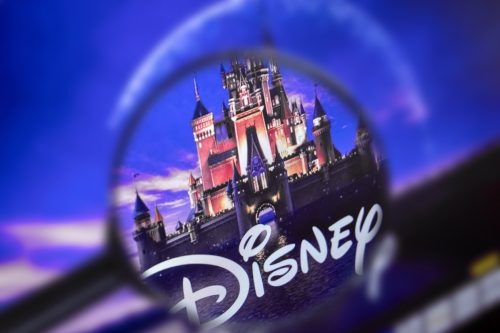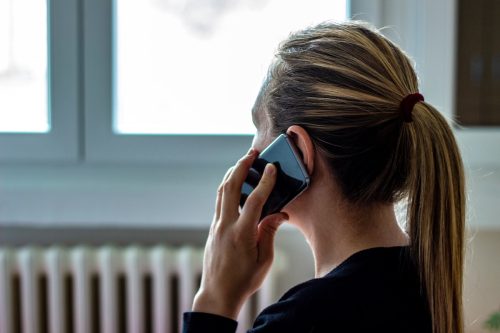Thieves Are Now Using This Trick to Steal From You, Police Say in New Warning
Victims think it's their lucky day before they find themselves robbed.

Thieves are, unfortunately, very crafty. They've become that much more adept at targeting and stealing from victims, and you can only take so many precautionary measures to keep yourself safe. In fact, in 2021, consumers reported losses totaling over $5.8 billion—a 70 percent increase from 2020—the Federal Trade Commission (FTC) said in February. Now, police have issued a warning about a new trick scammers are using, preying on your willingness to believe what they tell you. Read on to find out what thieves are doing to steal your money, and how to keep yourself safe.
READ THIS NEXT: If You Answer the Phone and Hear This, Hang Up and Call the Police.
New scams are on the rise.

Odds are you've familiarized yourself with some of the most common scams, and you might be pretty good at spotting a phishing email. But thieves also evolve, developing different ploys to get what they want. They'll even put on disguises—police in Bradenton, Florida warned residents about a burglar posing as a pest control worker.
They'll also pressure you into taking certain "deals." In September, the Cheyenne Police Department in Wyoming warned residents about an uptick in asphalt paving scams. As part of this con, suspects knock on your door and offer to pave your driveway at a discounted rate. But after starting the job, they up-charge victims and threaten to leave the drive incomplete unless the additional amount is paid.
While it's scary to have fraudsters show up at your door, they can be just as dangerous when hiding behind the phone. The Federal Bureau of Investigation (FBI) Field Office in Sacramento, California, recently warned Americans about a common scheme where "the caller claims to be from the FBI," preying on fears about being the victim of or wanted for a crime. Those scams utilize scare tactics, but some thieves prefer to trick you with "good" news.
Don't fall for this trick.

Winning a free vacation would be truly amazing, and for many, getting an all-expenses-paid trip to Disney World or Disneyland would truly be a dream come true. However, if you receive a call about winning a comped trip to these destinations, proceed with caution.
Police in Elmira, New York, warned about this new "phishing scam" on Sept. 27 after it was detected in the area. In a tweet, the Elmira Police Department stated that company has been using the name "Deluxe Travel" at local vendor events. There, they offer "a chance to win a 'free' trip to Disney. As you might suspect, this isn't a legitimate offer.
RELATED: For more up-to-date information, sign up for our daily newsletter.
Scammers follow up if you "win" the trip.

Elmira Police noted that the thieves will then call victims and say that they've won the free trip, adding that they still require your credit card information. If you find yourself in this situation, police stressed that you shouldn't give these details up, no matter how sweet the deal sounds.
"Do not give your credit card or personal information to anyone you do not know," the police department's tweet reads. They also asked that residents stay vigilant when it comes to email and malware phishing, as well as smishing, which is phishing done via text message.
These aren't the only Disney-related scams.

The warning from Elmira Police didn't specify whether the "free" trip was advertised for Disneyland in California or Disney World in Florida—but scams for both destinations are actually quite common.
According to DisneyFanatic, calls and texts about free trips to a Disney Theme Park or other Disney destinations happen frequently, and they also show up on social media. If you've already paid for an upcoming trip, scammers might call, claim to be a Disney cast member, and ask you to "confirm" credit card or other private information that you used to make your reservation.
These are just a few of the prevalent scams that you should be aware of if you have plans to book a trip to Disney any time soon. You could also end up purchasing counterfeit tickets to the park, especially if you're buying online, per DisneyFanatic.





















